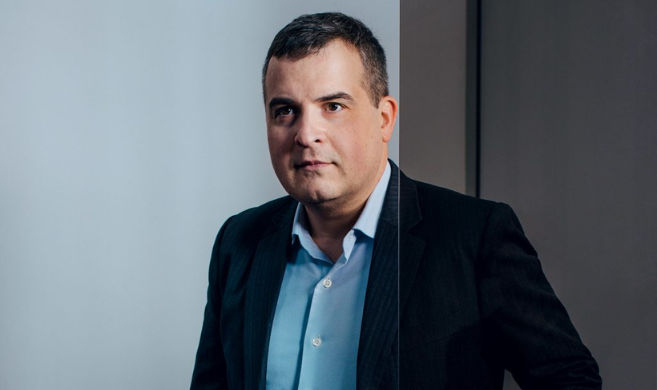Vagner first achieved notoriety by exposing fraudulent accounting at his former employer, commodities trader Noble Group. In that sense, he is what we call a whistleblower. He went on to become an often-quoted source in financial publications as director of Iceberg Research, which blends investigative reporting with investing. Iceberg probes companies listed on the world’s stock exchanges, and if it discovers what it thinks is fraud, it will publish its findings. It also will take out a short position on the company’s stock, meaning that it will make money if the share price goes down. (Here is a 2020 study co-authored by two HEC Paris researchers on the effectiveness of Iceberg and other activist short-selling firms.)
Vagner has a strong track record for spotting companies who have made suspect claims. In 2021, for example, Iceberg issued a report about Hyzon, a U.S. hydrogen vehicle maker, that expressed skepticism about its sales projections. Two years later, the company paid $25 million to settle a U.S. Securities and Exchange Commission lawsuit that alleged, among other things, that the company had misled investors about its business relationships to give a false impression that significant sales transactions were imminent.
In an interview, Vagner told Knowledge@HEC how a short-seller can play an important role in keeping green business honest and why so many of the firms that Iceberg scrutinizes are companies that make claims about their products’ environmental benefits.
Would you explain more about Iceberg Research? And what is the importance of your role in the markets?
We are “activist short sellers,” meaning we publish on listed companies that have fraudulent or misleading representations. We are also a traditional long/short fund. Activists are a rare critical voice in capital markets. If you look at all the people who do research, such as investment bank analysts, they have an incentive to write positive things about the company. Some investors may think auditors are independent and dependable. But the company pays them, and if they challenge their client too much, they will be replaced by a more friendly competitor. Then you have the journalists, who are mostly neutral. They want to investigate those companies, but they can only focus on the big ones because it’s very expensive to do research for months. That means that the smaller and medium-sized companies don’t get as much attention.
We’re also looking to have an impact on the stock price. You don’t want to publish something where you think the stock price will only go down by 10 percent. It’s not big news. You want a minimum of 30 to 35 percent.
Critics might accuse a short-seller of being biased because there’s an incentive to bring down a company’s share price.
We have an incentive to be right. If I come up with a weak report, you may get a drop in the stock price for a few minutes. But then after people realize that it’s weak, they might say, "I’m going to go out and buy that stock and make some money." So you end up having a damaging effect on your own position. We have a very thorough checking process before publishing. Sometimes we don’t publish at all because we think there’s a small chance we might get it wrong. We prefer to be conservative.
We have an incentive to be right.
Do you often go after companies that make unjustified claims that they are helping to fight climate change?
My job is not to directly expose companies that claim to address climate change. It's just that the percentage of frauds happens to be higher than average among these companies.
Do you have any theories on why that might be so?
Fraudsters target these industries for various reasons. One is supply and demand. These industries are perceived as "hot" by investors, creating a demand for stocks. Another reason is they’ve only just sprung up. If the company is new, there is no requirement to present substantial financial statements. Selling a PowerPoint presentation is easier than creating a real business. Finally, some investors attracted to climate change solutions may be more naive than average, and companies exploit this vulnerability. Repeating ad nauseam that the company's mission is to save the planet doesn't necessarily make the company trustworthy. In fact, it often signals the opposite.
If companies are claiming to address climate change but turn out not to actually have a positive climate impact, what sort of harm does that cause?
The companies we expose fail to address climate change, but they are also financial failures because their product does not work or is inferior. Their only achievement is to enrich management. And it does take away capital for other companies that have real and cost-effective climate solutions.
Of all the companies you’ve scrutinized at Iceberg Research, how many promised a climate benefit but didn’t not deliver it?
Recently, at least half of them.
How do you spot companies that you choose to scrutinize, and how do you go about studying them?
I’ll give you the example of Lilium (a German developer of an all-electric aircraft). We started to look at this company because there was some criticism about their technology in the German professional press. We looked at the founders and what they had achieved. We asked an aeronautics engineer to review the concept. (Iceberg’s 2022 report on the company expressed skepticism about its battery technology and the aircrafts’ ability to stay aloft for more than brief tests, among other issues. This led to an investor lawsuit and a sharp fall in its stock, Ed.)
Do you have any advice for investors?
Something basic: if you see a green tech company being overly promotional, and delivering little or nothing, then definitely stay away.






